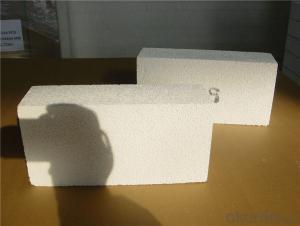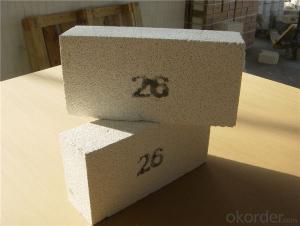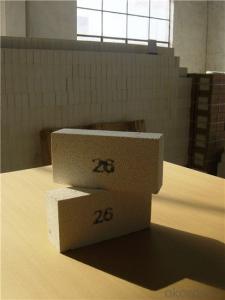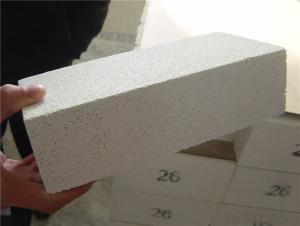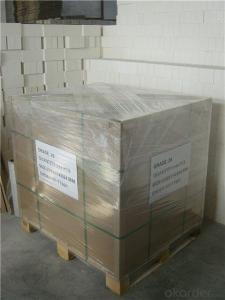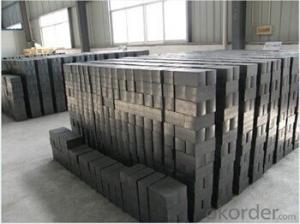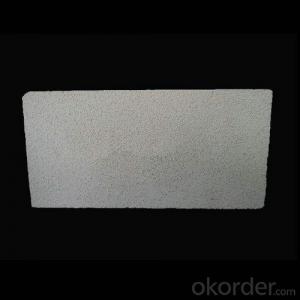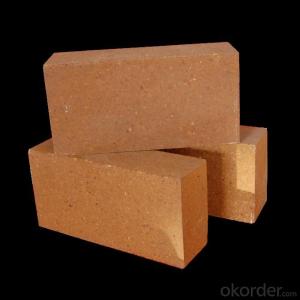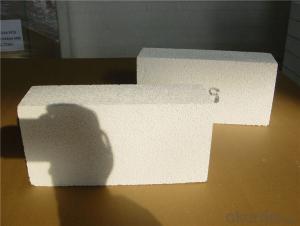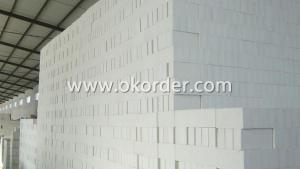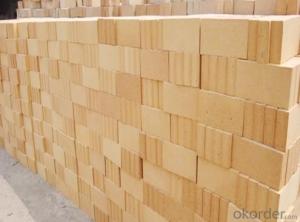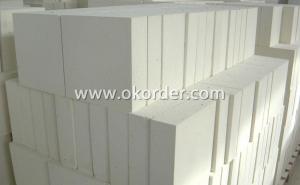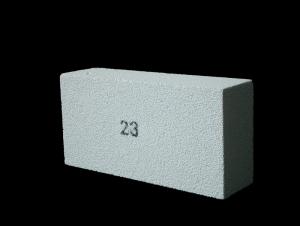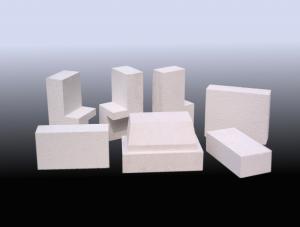Excellent Thermal Insulation Performance Al-38fire Clay Brick For Aluminium Industry
- Loading Port:
- Shanghai
- Payment Terms:
- TT OR LC
- Min Order Qty:
- 1 m.t.
- Supply Capability:
- 1000 m.t./month
OKorder Service Pledge
OKorder Financial Service
You Might Also Like
Thermal Insulation Fire Clay Brick
Refractory brick is a block of refractory ceramic material used in lining furnaces, kilns, fireboxes, and fireplaces.
We provide high quality Refractory Fire Bricks that are used on wide range in the various industries like Cement, Glass and Steel. Refractory Fire Bricks are provided as per the quantity and specifications required by the customers. We provide an extensive range of Refractory Fire Bricks at reasonable prices that depend upon the quantity ordered.
Application
Insulating Fire Brick are used for the lining of converter, alternating current arc furnace, direct Current arc furnace and the ladle slag line, etc.
Company Advantage
(1)Long Insulating Fire Brick manufacture history: 25 years manufacturer
(2)Advanced equipment
(3)Diversification of production standards: ISO ANSI FEPA JIS ASTM
(4)Flexible payment: T/T L/C D/P D/A
(5)Professional marketing team and after-sale service
Insulating Fire Brick main feature:
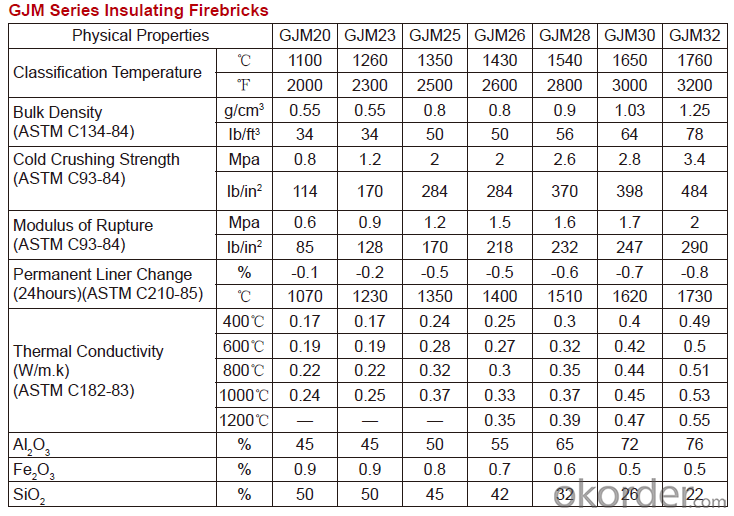
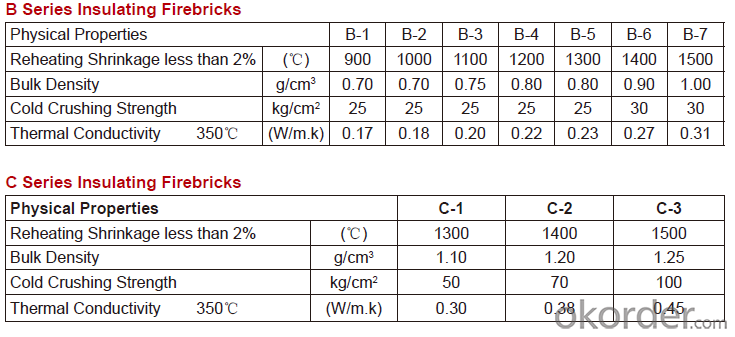
Equipment
1 unit of Ceramic Abrasive (SG Abrasive) pilot production line
2 units of Compact grain Abrasive pilot production lines
1 unit of high-end coated abrasives (abrasive cloth) production line
2 units of Boron Carbide production lines
3 large flexible crushing and sieving lines for grit production lines
6 units of 5000KVA-10000KVA dumping type electric arc furnaces for Brown Fused Alumina fusion
Q1 What’s the transport method?
A1 FCL delivery goods with wooden pallet or wooden case by sea; If LCL delivery, must with wooden case; Sometimes need open top, flat rack or bulk cargo.
Q2 What’s the required payment term?
A2 Generally 30% TT as the prepayment, 70% TT before delivery. If need, 100% Irrevocable Letter of Credit or negotiation.
Q3 Which country are our products exported to?
A3 Apart from entire Chinese market, the US, Russia, Japan, Korea, Australia and some Southeast Asian Nations.
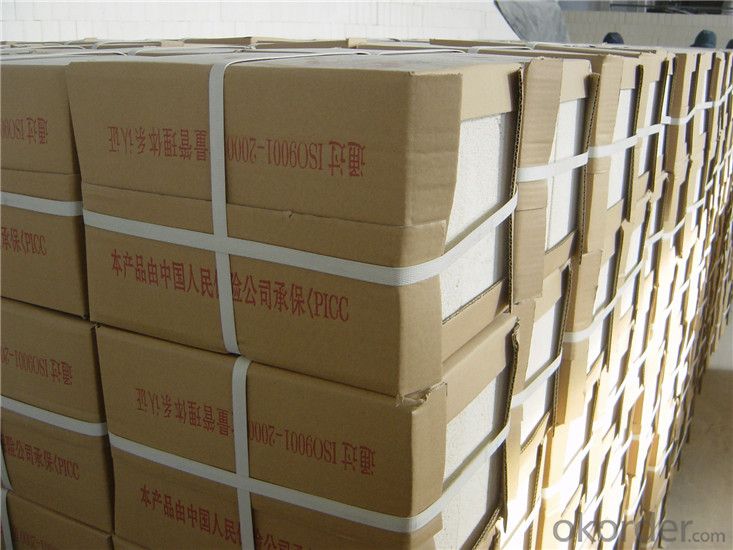
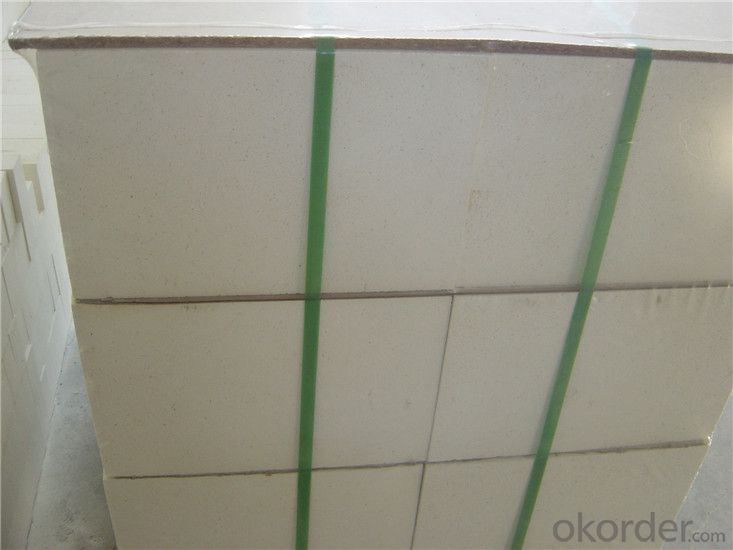
- Q:Can insulating fire bricks be used in the construction of heat exchangers?
- Yes, insulating fire bricks can be used in the construction of heat exchangers. Insulating fire bricks are designed to have excellent thermal insulation properties, which makes them ideal for applications where high temperatures need to be maintained or controlled. Heat exchangers are devices that transfer heat between two or more fluids, and insulation is crucial to prevent heat loss or gain during the process. Using insulating fire bricks in the construction of heat exchangers helps to minimize heat transfer to the surrounding environment, resulting in improved energy efficiency and reduced operating costs. The bricks can withstand high temperatures, typically up to 3000°F (1650°C), making them suitable for various heat exchanger applications, including furnaces, boilers, and industrial processes. Additionally, insulating fire bricks are lightweight and have low thermal conductivity, which means they provide effective insulation while being less bulky and more cost-effective than traditional refractory bricks. This makes them easier to handle and install in heat exchanger systems. Overall, the use of insulating fire bricks in the construction of heat exchangers offers several advantages, including enhanced thermal insulation, improved energy efficiency, and reduced costs.
- Q:Can insulating fire bricks be used in space heating applications?
- Yes, insulating fire bricks can be used in space heating applications. Insulating fire bricks are designed to withstand high temperatures and provide excellent insulation, making them suitable for use in heating systems where retaining heat is important. They can help increase the efficiency of space heating applications by reducing heat loss and ensuring more effective heat transfer.
- Q:Do insulating fire bricks expand and contract with temperature changes?
- Yes, insulating fire bricks do expand and contract with temperature changes. Like any material, when exposed to heat, the insulating fire bricks expand, and when cooled, they contract. This expansion and contraction occur due to the thermal expansion coefficient of the material, which determines how much it will expand or contract for a given change in temperature. It is important to consider this property when using insulating fire bricks in applications where temperature fluctuations are expected, as failure to account for the expansion and contraction may lead to structural damage or cracking.
- Q:Can insulating fire bricks be used to build pizza ovens?
- Indeed, pizza ovens can be constructed using insulating fire bricks. These bricks are specifically designed to endure high temperatures and offer exceptional insulation, rendering them a suitable choice for pizza oven construction. With their low thermal conductivity, these bricks aid in retaining and evenly distributing heat throughout the oven. The insulating qualities of the bricks facilitate the attainment and maintenance of the desired temperature, ensuring efficient and consistent pizza cooking. Moreover, the lightweight nature of insulating fire bricks simplifies handling and installation during the construction process. All in all, due to their capacity to withstand high temperatures and provide efficient insulation, insulating fire bricks prove to be an excellent option for pizza oven construction.
- Q:How do insulating fire bricks affect the overall durability of a structure?
- The overall durability of a structure is significantly improved with the inclusion of insulating fire bricks. These bricks are designed with a low thermal conductivity, effectively resisting heat transfer. By limiting the amount of heat that passes through, they maintain a stable temperature within the structure, safeguarding it against extreme temperature changes. One of the primary advantages of insulating fire bricks is their capacity to endure high temperatures. They possess a high melting point, enabling them to maintain their structural integrity even in the presence of intense heat. This characteristic is particularly important in structures that generate high temperatures, such as furnaces or kilns. The ability of insulating fire bricks to withstand such extreme heat greatly contributes to the structure's durability. Additionally, insulating fire bricks offer exceptional insulation. Their low thermal conductivity prevents heat from escaping or entering the structure, resulting in energy efficiency. This not only reduces energy consumption, but also shields the structure from potential damage caused by excessive heat loss. By maintaining a consistent temperature, insulating fire bricks prevent thermal expansion and contraction, which can lead to cracks and structural instability. Apart from their resistance to heat and insulation properties, insulating fire bricks are also known for their resistance to chemical corrosion. Many structures are exposed to harsh environments or chemicals that can cause deterioration. However, insulating fire bricks are made from materials that resist chemical reactions, ensuring their durability and longevity. Overall, the utilization of insulating fire bricks significantly enhances the durability of a structure. Their capacity to endure high temperatures, provide insulation, and resist chemical corrosion makes them a valuable component in various industrial and residential applications. By ensuring a stable and protected environment, insulating fire bricks contribute to the long-lasting and reliable performance of the structure.
- Q:Can insulating fire bricks be used in power plants?
- Indeed, power plants have the capability to utilize insulating fire bricks. These bricks, also referred to as refractory bricks, are specifically designed to endure extreme temperatures and offer exceptional thermal insulation. They find extensive usage in a wide range of industrial settings, including power plants. The combustion of fossil fuels or the process of nuclear fission within power plants generates a substantial amount of heat. In order to ensure efficient operations and prevent heat loss, power plants employ insulating fire bricks to line the walls, floors, and ceilings of furnaces, boilers, and other areas that experience high temperatures. Insulating fire bricks possess a low thermal conductivity, thereby effectively reducing heat transfer. This serves to conserve energy and enhance the overall efficiency of power plants. Furthermore, these bricks exhibit high resistance to thermal shock, enabling them to withstand abrupt temperature changes without sustaining any cracks or fractures. In addition, insulating fire bricks are lightweight and simple to install, making them an ideal choice for power plant applications. They also possess resistance to chemical corrosion, which is crucial in power plants where various gases and chemicals are present. To summarize, insulating fire bricks are an appropriate option for power plants due to their ability to endure high temperatures, offer exceptional thermal insulation, and resist thermal shock and chemical corrosion. Incorporating these bricks into power plant applications serves to enhance energy efficiency and maintain optimal operating conditions.
- Q:Can insulating fire bricks be used in refractory castings?
- Yes, insulating fire bricks can be used in refractory castings. Insulating fire bricks are lightweight and have high insulating properties, making them suitable for applications that require thermal insulation. This includes refractory castings, which are used to create linings in furnaces, kilns, and other high-temperature equipment. The insulating fire bricks can be used as a layer or as a part of the refractory casting mix to provide thermal insulation and reduce heat loss. Additionally, their low thermal conductivity helps in minimizing energy consumption and maintaining high temperatures within the casting.
- Q:Can insulating fire bricks be used for sound insulation?
- No, insulating fire bricks are primarily designed for high-temperature applications such as lining furnaces, kilns, or fireplaces, and are not effective for sound insulation purposes.
- Q:Can insulating fire bricks be used in the construction of glass fusing kilns?
- Indeed, glass fusing kilns can utilize insulating fire bricks. These bricks are specifically crafted to endure extreme temperatures and deliver exceptional insulation, rendering them fitting for kiln application. They aid in retaining heat and guaranteeing uniform distribution within the kiln, a critical component of the glass fusing procedure. Moreover, insulating fire bricks possess the advantages of being lightweight and long-lasting, making them an ideal choice for kiln construction. They effectively minimize heat loss, enhance energy efficiency, and uphold a steady temperature inside the kiln, all of which are pivotal factors for achieving successful glass fusing.
- Q:Are insulating fire bricks resistant to impact or mechanical stress?
- Yes, insulating fire bricks are generally resistant to impact and mechanical stress due to their high strength and durability.
1. Manufacturer Overview |
|
|---|---|
| Location | |
| Year Established | |
| Annual Output Value | |
| Main Markets | |
| Company Certifications | |
2. Manufacturer Certificates |
|
|---|---|
| a) Certification Name | |
| Range | |
| Reference | |
| Validity Period | |
3. Manufacturer Capability |
|
|---|---|
| a)Trade Capacity | |
| Nearest Port | |
| Export Percentage | |
| No.of Employees in Trade Department | |
| Language Spoken: | |
| b)Factory Information | |
| Factory Size: | |
| No. of Production Lines | |
| Contract Manufacturing | |
| Product Price Range | |
Send your message to us
Excellent Thermal Insulation Performance Al-38fire Clay Brick For Aluminium Industry
- Loading Port:
- Shanghai
- Payment Terms:
- TT OR LC
- Min Order Qty:
- 1 m.t.
- Supply Capability:
- 1000 m.t./month
OKorder Service Pledge
OKorder Financial Service
Similar products
New products
Hot products
Related keywords
